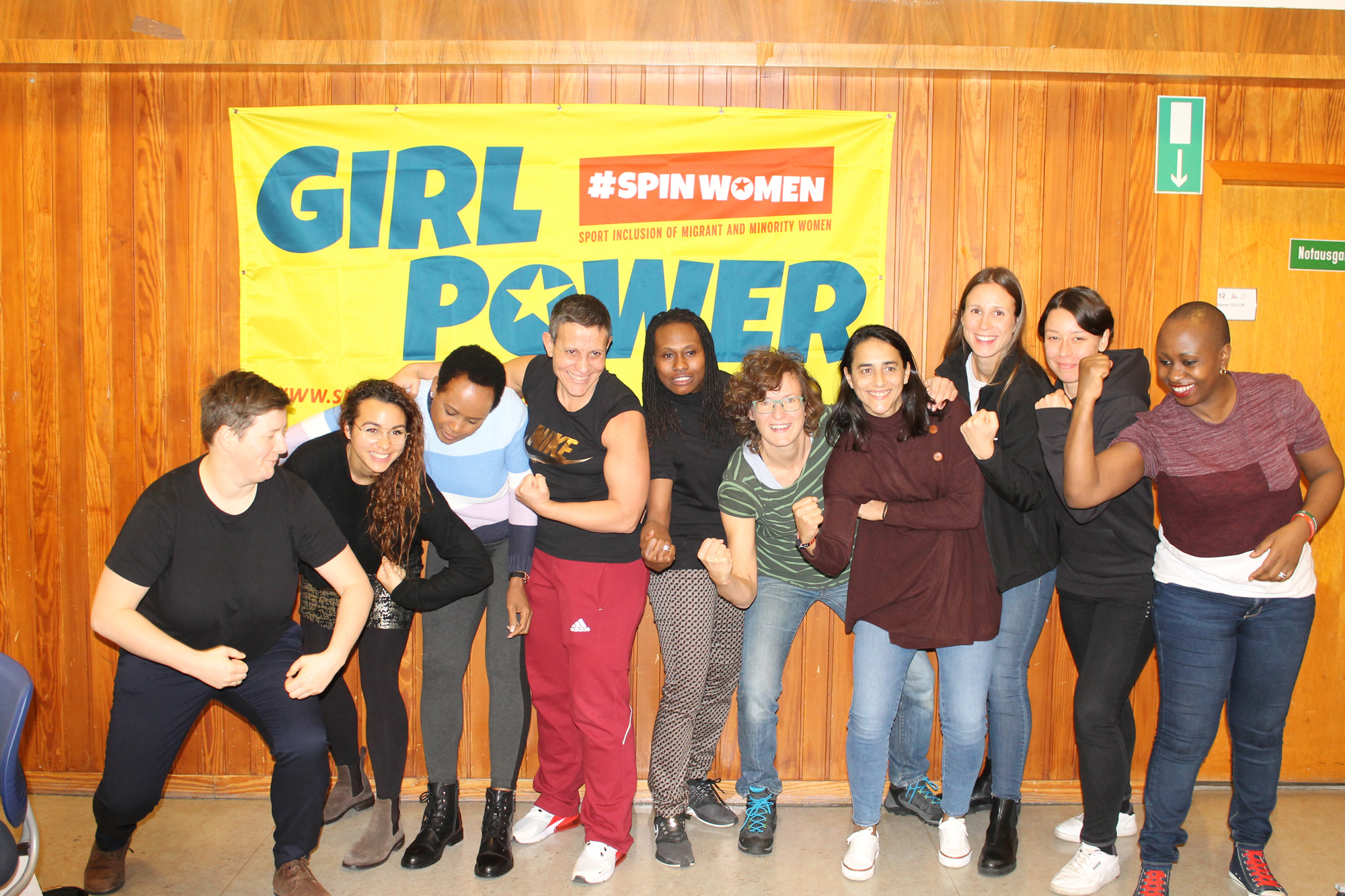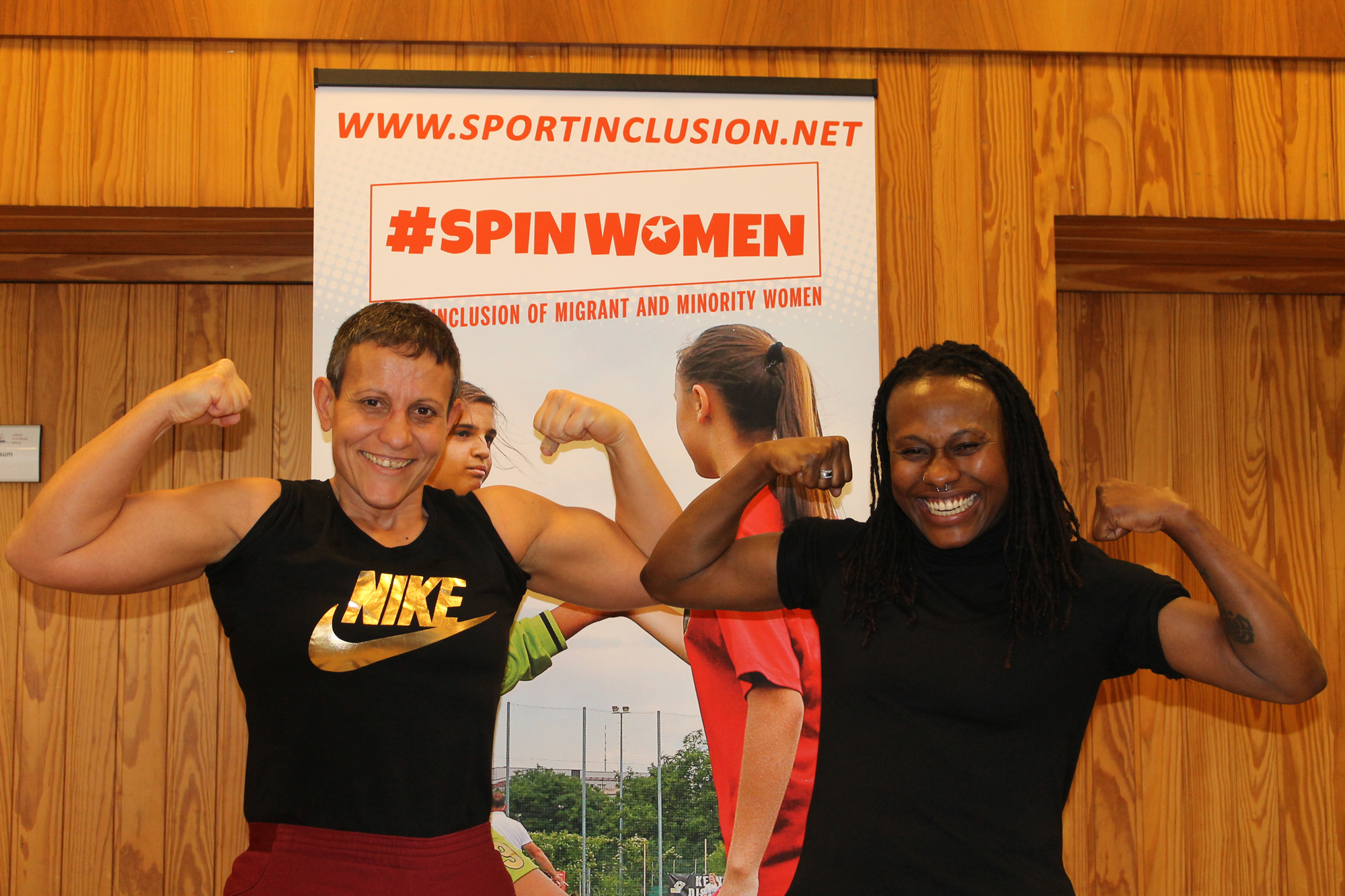Commitment, the wish to learn and discover new perspectives and breaking down barriers for women in sport have been the shared motivations of all participants brought together from all over Europe to attend the Train the Trainers Seminar in Berlin. The seminar took place on November 30th and December 1st in the context of the SPIN Women project.
About the project
The Erasmus+ project SPIN Women (SPIN = sport inclusion) is aiming at increasing the participation of minority and migrant women in sport through research, education and awareness raising amongst sport stakeholders.
About the training
The programme of the training was a good combination of theoretical presentations, practical activities and life stories, with the aim to share knowledge and instruments for the daily usage. As a matter of fact, participants had different profiles, they were coaches, educators, project managers. However, the lowest common denominator was the work with girls and women with different ethnic backgrounds.
The training took place at the Gerhard-Schlegel-Sportschule in Berlin and was opened by Joana Seydel from the Berlin Sports Association. Camino and the fairplay Initiative at the Vienna Institute for International Dialogue and Cooperation (VIDC) hosted the event in cooperation with the Football Association of Ireland (FAI).
Diverse Speakers & Facilitators
After an introduction of the hosts, the programme was opened by Lulu Sabbiti (Liikkukaa) while giving an overview of the SPIN Women project, while Victoria Schwenzer (Camino) presented a preview of results of Trans-European research on barriers and strategies to integrate minority women in and through sports. The research will be published later in 2020. Together with Nikola Staritz (fairplay-VIDC) a session was facilitated in which the participants could add their experiences on these issues.
The practical part of the training was conducted by David Hudelist (fairplay-VIDC) and Des Tomlinson (FAI). They were sharing a wide range of methods (e.g. role games, group discussion, adopted football games, step-forward-method) on how to raise awareness on issues if discrimination, identity, exclusion and inclusive communication and games where everybody is welcome.
Practical tools
The training venue’ sports hall was used for presenting further methods. Katrin Oberhöller, a workshop facilitator of fairplay-VIDC was sharing a role game on stereotypes that was aiming at shifting perspective. Participants had to step into the shoes of specific characters, deciding if in specific situations they are or are not able to join the game. This is a method about experiencing exclusion, about how it feels like when being unwelcome and not able to be oneself.
Furthermore, attendees of to training established a cultural/social inclusion policy in an imagined club or sportive association during a very practical session conducted by Lulu Sabbiti and Cynthia Uwak (Liikkukaa).
Best practices & testimonials
Several best practice examples on sport and inclusion have been shown, seen both from the eyes of organisers and beneficiaries of the programmes. The stories were presented by initiatives like SportBunt (Berlin), Champions without borders (Berlin) and Mahatma Gandhi Human Rights Organisation (Hungary). The Hungarian example showed the work with Roma communities and Melinda Lazar, a famous Hungarian Roma boxer, presented her activities and stories.
Former stars like Cynthia Uwak (Nigerian team player), Carla Cuoto (Portuguese Football Player’s Syndicate SJPF and former Portuguese national team player) and Anselmo Cardoso (SJPF and former Portuguese player) talked about women’s football and the progress that has been made.


